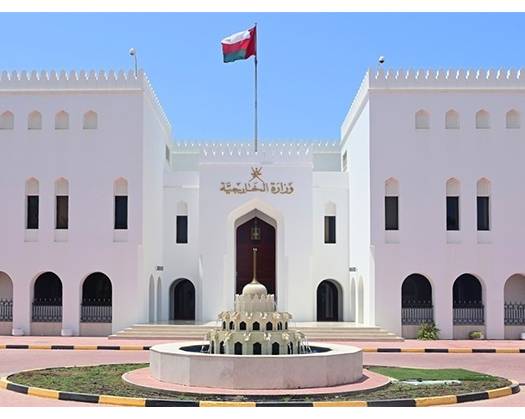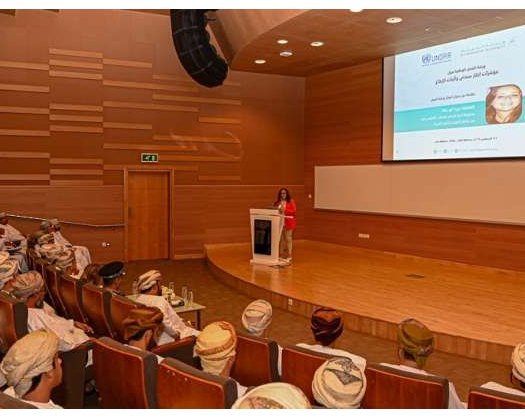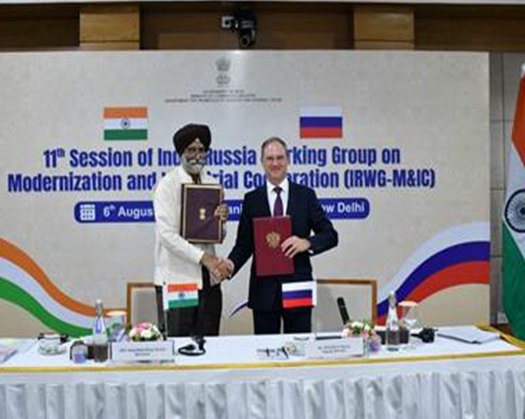Muscat: The Ministry of Labour honored excellent organizations for their institutional excellence in 2024 during a ceremony on Tuesday evening, commending their efforts in increasing operational efficiency and supporting the ministry's objectives of establishing a culture of continuous development and improving competitive benchmarks.
The ceremony took place under the supervision of Dr. Mahad Said Ba'Owain, Minister of Labour.
Sayyid Salim Musallam Al Busaidi, Undersecretary of the Ministry of Labour for Human Resources Development, stated that the project aims to institutionalise best practices for improving working environments, simplifying processes, and driving teams toward concrete outcomes that benefit both workers and service consumers. He noticed that the prizes emphasize creative thinking above standard processes, as well as mature institutional behavior over short-term success.
The Ejada (Excellence) system has encouraged government entities to implement concrete measures, policies, and techniques that foster innovation and enhance service quality for citizens and society. It has also improved institutional performance culture and promoted meaningful rivalry among departments.
The system examined 61 government administrative units beginning on January 1, 2023, analyzing over 14 million data points, including fixed indicators, employee input on administrative practices, job satisfaction surveys, and insights from 170,000 beneficiaries across 700 government service centers in 2023.
Government units were evaluated based on their yearly performance progress across seven critical areas: leadership and strategic planning, human capital and institutional culture, collaboration and operations, customer satisfaction, innovation, governance, and environmental and social responsibility—each measured by five performance measures.
Seventeen high-performing government groups were recognized, with selection based on institutional size—noting an inverse link between size and ease of performance improvement.
The following prizes were also presented:.
• Continuous Improvement Award: The Public Authority for Special Economic Zones and Free Zones (OPAZ), the Civil Aviation Authority (CAA), and the Telecommunications Regulatory Authority (TRA).
• Human Capital Prize: Tender Board Secretariat General, Central Bank of Oman (CBO), and Telecommunications Regulatory Authority.
• Innovation Support Prize: Authority for Public Services Regulation.
• Sustainable Growth Prize: Oman Vision 2040 Implementation Followup Unit, Oman Investment Authority (OIA), and South Al Sharqiyah Governorate.
• Partnership and Cooperation Prize: Ministry of Finance.
• Customer Satisfaction Award: The National Records and Archives Authority (NRAA), the Social Protection Fund, and the Civil Aviation Authority.
• The Ministry of Energy and Minerals, the Oman Medical Specialty Board, and the Ministry of Education are the top teams for implementing Ejada.
• Best Support and Response Team: Al Dakhiliyah Governorate, Ministry of Labor, and Ministry of Housing and Urban Planning.
• Best Individual Performance Measurement Team: Ministry of Health, Environment Authority (EA), and University of Technology and Applied Sciences (UTAS).
The ceremony also honored outstanding private sector figures in employment and Omanisation, including:.
• Oman Security and Safety Services, Petroleum Development Oman, Gulfar Engineering & Contracting, Al Tawoos Industrial Services, Gulf Petrochemical Services & Trading, Al Tasnim Projects, LT Industrial Installation Complex, Oman National Engineering & Investment Co. , Arabian Industries Projects Co. , Nesto Hypermarket, OQ, National Bank of Oman, Rihal Data & Electronic Services, and National Drilling & Services Co.
Key accomplishments of the Ejada system include: 45% of supervisory positions in the public sector are now subject to qualification programs; 64% of workers (111,475) benefited from competency development opportunities; the employee resignation rate indicator improved by 72%, while sector partnerships increased by 233% (totaling 2,579 agreements); SME funding increased by 111% (OMR152. 5 million), and 4,863 process procedures were optimized; Innovation support initiatives increased by 184%, with financing up 153% (OMR45. 1 million); 94% of complaints were resolved on time, with a 38% decrease in complaints against government units; Environmental and community programs grew by 247% and 642%, respectively; public engagement in decision-making increased by 15%, and media outreach on government plans increased by 76%.
The Ejada system has dramatically improved institutional performance, service quality, and stakeholder confidence in Oman's public and commercial sectors.










